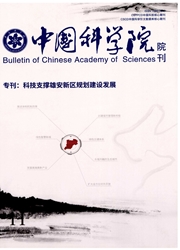

 中文摘要:
中文摘要:
人类社会是一类以人的行为为主导、自然环境为依托、资源流动为命脉、社会文化为经络的社会-经济-自然复合生态系统,自然子系统是由水、土、气、生、矿及其间的相互关系来构成的人类赖以生存、繁衍的生存环境;经济子系统是指人类主动地为自身生存和发展组织有目的的生产、流通、消费、还原和调控活动;社会生态子系统是人的观念、体制及文化构成。这三个子系统是相生相克,相辅相成的。三个子系统之间在时间、空间、数量、结构、秩序方面的生态耦合关系和相互作用机制决定了复合生态系统的发展与演替方向。复合生态系统理论的核心是生态整合,通过结构整合和功能整合,协调三个子系统及其内部组分的关系,使三个子系统的耦合关系和谐有序,实现人类社会、经济与环境间复合生态关系的可持续发展。
 英文摘要:
英文摘要:
Human society is a social-economic-natural complex ecosystem, which is dominated by human activities, supported by physical environment. In the complex ecosystem, resource flows are vital lifeline, culture is the channel and collaterals. The natural sub-system, the human-being survival and prosperous environment, is made up of water, soil, atmosphere, organisms and resources, and their inter-relationship. The economic sub-system consists of the human activities of production, circulation, consumption, and reduction for purposes of survival and development. The social sub-system includes human-being, institution, value and culture. The three sub-systems fimctionally act as a whole by complementarily, and promoting and constraining mutually as well. Their ecological interactions in time, space quantity, structure and order determine the succession trends of the complex ecosystems. The core of complex ecosystem integration is to coordinate the interaction between three subsystems and their components toward sustainability through adjusting their structure and fimction.
 同期刊论文项目
同期刊论文项目
 同项目期刊论文
同项目期刊论文
 Urban population agglomeration in view of complex ecological niche: A case study on Chinese prefectu
Urban population agglomeration in view of complex ecological niche: A case study on Chinese prefectu Measurement indicators and an evaluation approach for assessing urban sustainable development: A cas
Measurement indicators and an evaluation approach for assessing urban sustainable development: A cas Identification and assessment of environmental burdens of Chinese copper production from a life cycl
Identification and assessment of environmental burdens of Chinese copper production from a life cycl Dynamic mechanism and adaptive ecological management of the coastal mudflat wetland complex ecologic
Dynamic mechanism and adaptive ecological management of the coastal mudflat wetland complex ecologic Factors influencing the dechlorination of organo-chlorine pesticides in soils of a contaminated site
Factors influencing the dechlorination of organo-chlorine pesticides in soils of a contaminated site 期刊信息
期刊信息
